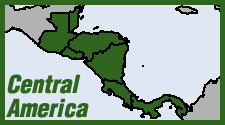 OK, we don't want to get too paranoid here. But last month, after years of studying the matter, the government of Belize took a big step toward cannabis decrim. On Feb. 19, the cabinet formally handed recommendations made by the Decriminalization of Marijuana Committee, assigned to assess the matter, over to the office of the Attorney General for final review. This means introduction of a decrim bill is almost certainly imminent. Sources say the proposed legislation would allow for persons in possession of 10 grams or less to face a fine or community service. The fine is named as 15 Belizean dollars (US$7.50) per gram. The law would also be retroactive, expunging the records of those convicted in the past for possession within these limits. Former National Security Minister Doug Singh, who has pushed for a more lenient policy, said, "Too many young people have this following them, those who are seeking jobs."
OK, we don't want to get too paranoid here. But last month, after years of studying the matter, the government of Belize took a big step toward cannabis decrim. On Feb. 19, the cabinet formally handed recommendations made by the Decriminalization of Marijuana Committee, assigned to assess the matter, over to the office of the Attorney General for final review. This means introduction of a decrim bill is almost certainly imminent. Sources say the proposed legislation would allow for persons in possession of 10 grams or less to face a fine or community service. The fine is named as 15 Belizean dollars (US$7.50) per gram. The law would also be retroactive, expunging the records of those convicted in the past for possession within these limits. Former National Security Minister Doug Singh, who has pushed for a more lenient policy, said, "Too many young people have this following them, those who are seeking jobs."
So much for the good news. Just after this happy development made local headlines in Belize, the US State Department released its 2016 International Narcotics Control Strategy Report (INCSR)—naming the country as one of 14 around Central America and the Caribbean believed to be “major money laundering” centers. The report, released March 5, admits that Belize is not a major regional financial center, but states: "The government of Belize continues to encourage offshore financial activities that are vulnerable to money laundering and terrorist financing, including offshore banks, insurance companies, trust service providers, mutual fund companies, and international business companies."
This is the second year running that Belize has made the INCSR list. The others making the list this year are Antigua and Barbuda, the Bahamas, the British Virgin Islands, Cayman Islands, Colombia, Costa Rica, Curacao, the Dominican Republic, Guatemala, Haiti, Panama, St. Maarten, and Venezuela. There is considerable overlap between these countries and those which have stood up to Uncle Sam and broached a decriminalization solution to the Drug War dilemma in recent years. In 2012, Belize and all the other Central American nations were placed on a White House "watch list" as "Major Illicit Drug Transit" countries.
Whether or not these moves were politically motivated, Belize is certain to meet opposition from Washington as well as its own domestic conservatives as it moves toward a more humane and rational cannabis policy. (Belize Breaking News, Caribbean News Now, March 5; Amandla, Belize, Feb. 20; The Reporter, Belize, Feb. 19)
Cross-post to High Times







Recent comments
3 weeks 2 days ago
3 weeks 2 days ago
6 weeks 3 days ago
7 weeks 2 days ago
11 weeks 2 days ago
15 weeks 1 day ago
19 weeks 1 day ago
19 weeks 6 days ago
29 weeks 6 days ago
34 weeks 2 hours ago